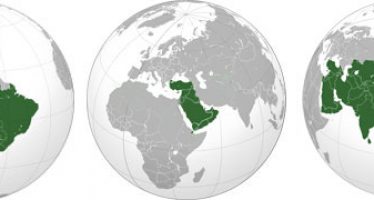World Bank: Vietnam Sees Early Signs of Economic Recovery

Hanoi, Vietnam
Hanoi, December 3, 2014 – Early signs show that Vietnam’s economic recovery is on track, says the World Bank’s Taking Stock report, released today. Vietnam’s economic growth is expected to improve from 5.4 percent in 2013 to 5.6 percent in 2014.
This positive outlook is largely due to the country’s ongoing macroeconomic stability and continued strong performance of the foreign-invested manufacturing export sector. Positive macroeconomic conditions contributed to Vietnam’s improved sovereign risk ratings, enabling US$1 billion of government bonds to be issued on international capital markets on favorable terms.
“Vietnam’s potential for much more rapid growth can only be realized if substantial progress is made in addressing distortions such as in the state enterprise and banking sectors, that tax the economy’s efficiency and productivity,” says Victoria Kwakwa, World Bank Country Director for Vietnam. “Stepping up this reform agenda and strengthening the business environment are critical for moving forward.”
The report finds that underlying the broad pattern of economic recovery, the performances of foreign-invested and domestic firms remain dichotomous. The foreign-invested sector continues to be a significant source of growth, while the domestic private sector remains subdued, as reflected in the rising number of domestically-owned businesses that have closed or suspended operations.
“Vietnam’s potential for much more rapid growth can only be realized if substantial progress is made in addressing distortions such as in the state enterprise and banking sectors, that tax the economy’s efficiency and productivity.”
– Victoria Kwakwa, World Bank Country Director for Vietnam
Over the medium term, Vietnam’s macroeconomic outlook is good, with continued modest GDP growth and a further consolidation of macroeconomic stability. The outlook is subject to two key risks: (i) relatively slow progress on SOE and banking sector reforms could adversely impact macro-financial conditions; (ii) adverse turn of events in the global economy could undermine Vietnam’s growth prospects, given the relatively large size of the export sector.
The report has a special section on Financial Sector Assessment, which summarizes the major findings of the recent Financial Sector Assessment Program. The report highlights a complex array of institutional and regulatory factors that are responsible for the weak performance of the financial sector. The government has announced a comprehensive reform program designed to address these problems faced. The FSA provides a broad set of policy recommendations that can be used to operationalize the government’s program. Source
New World Bank Report, Taking Stock, Shows Increase in Vietnamese Economic Growth
You may have an interest in also reading…
U.S. Trade Deficit and Consumer Sentiment Rise
The United States trade deficit widened in November to its largest point in five months, prompting some economists to slightly
Annual Investment Meeting (AIM), Ministry of Economy, United Arab Emirates, 2015
AIM 2015, which was held from 30 March – 1 April at the Dubai international Convention and Exhibition Center, focused
2012 CFI Top 100 Emerging Markets Companies’ Nominations
The 2011 CFI Top 100 Emerging Market Companies were compiled by using the nominations and the votes from CFI’s subscriber


















































































